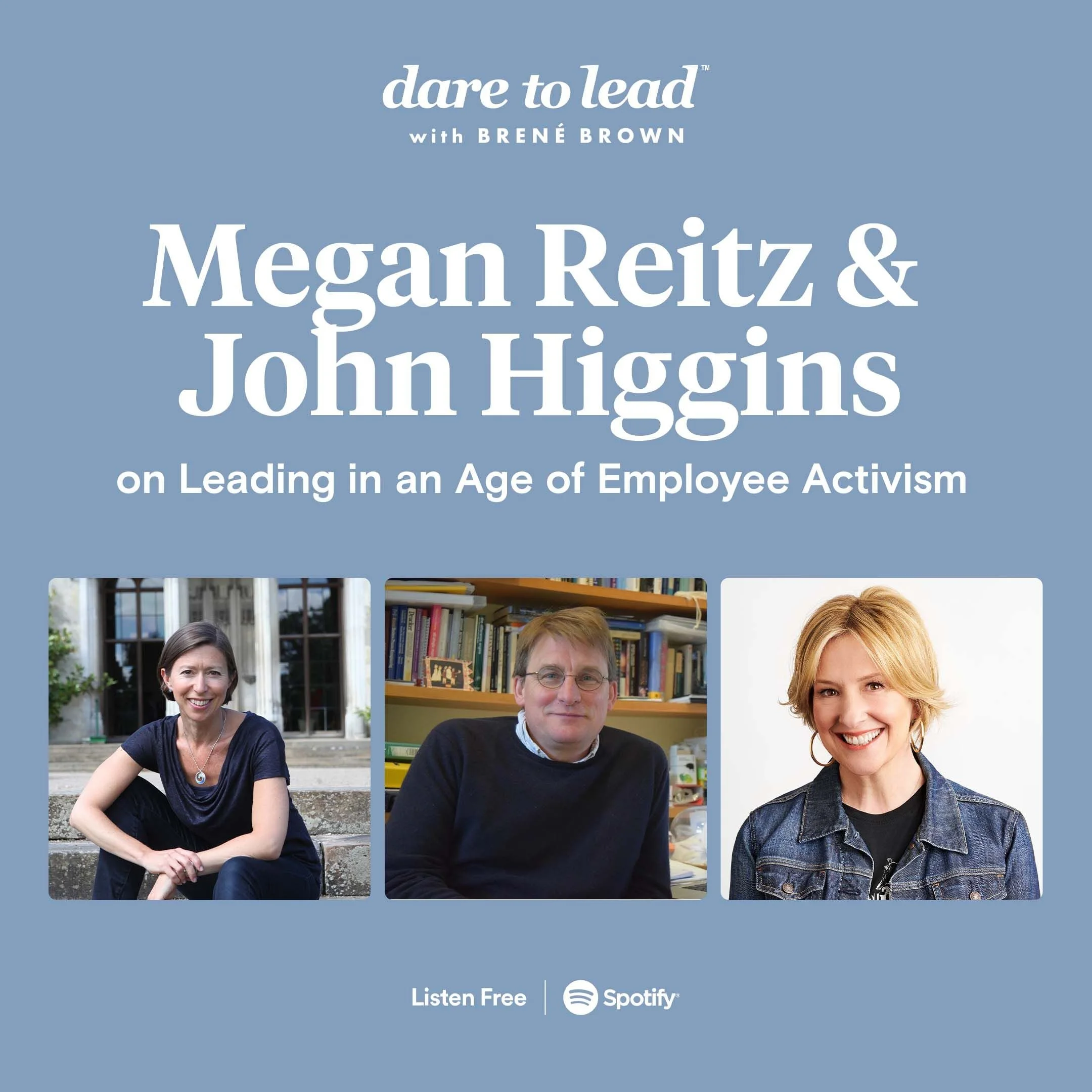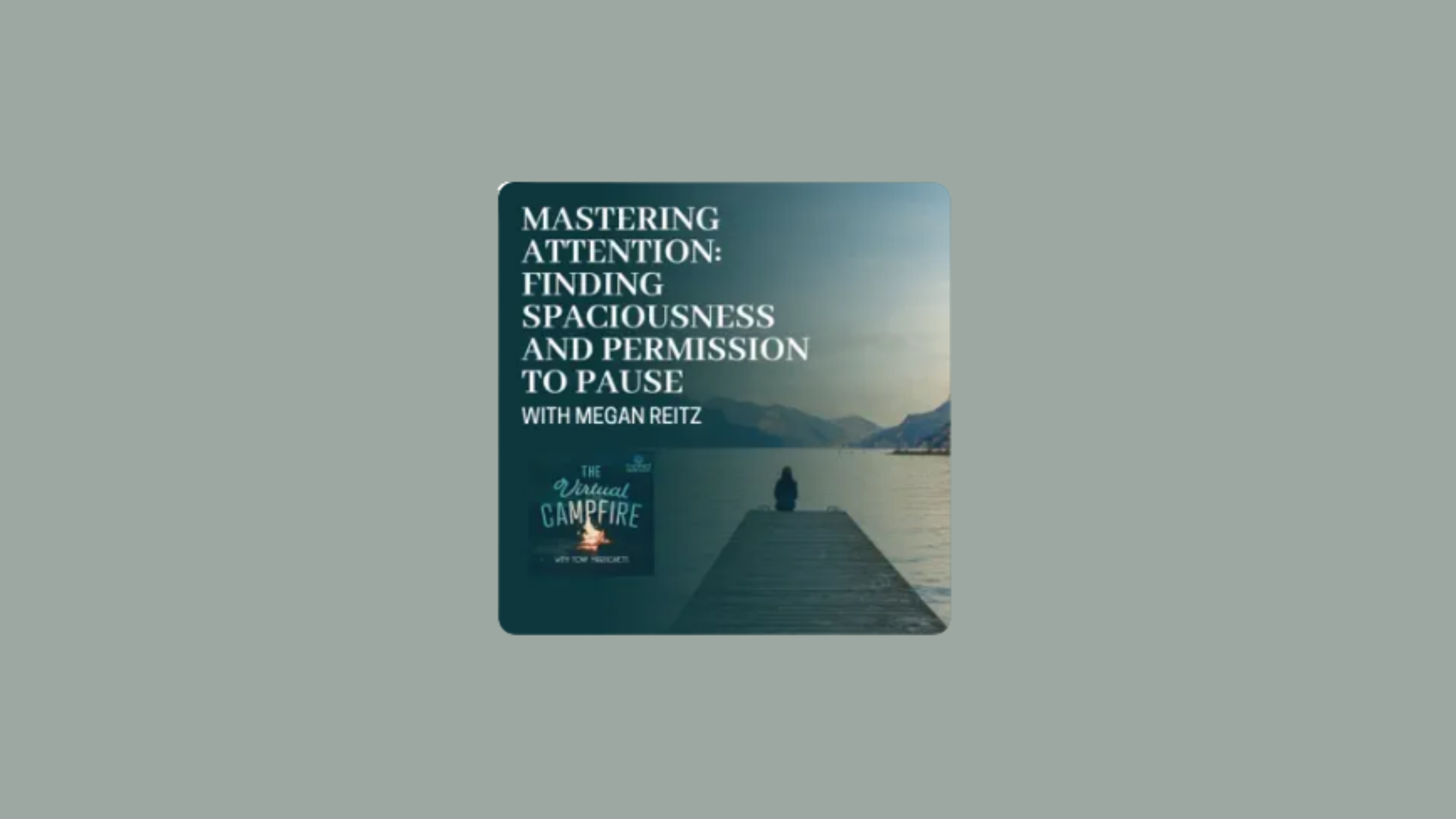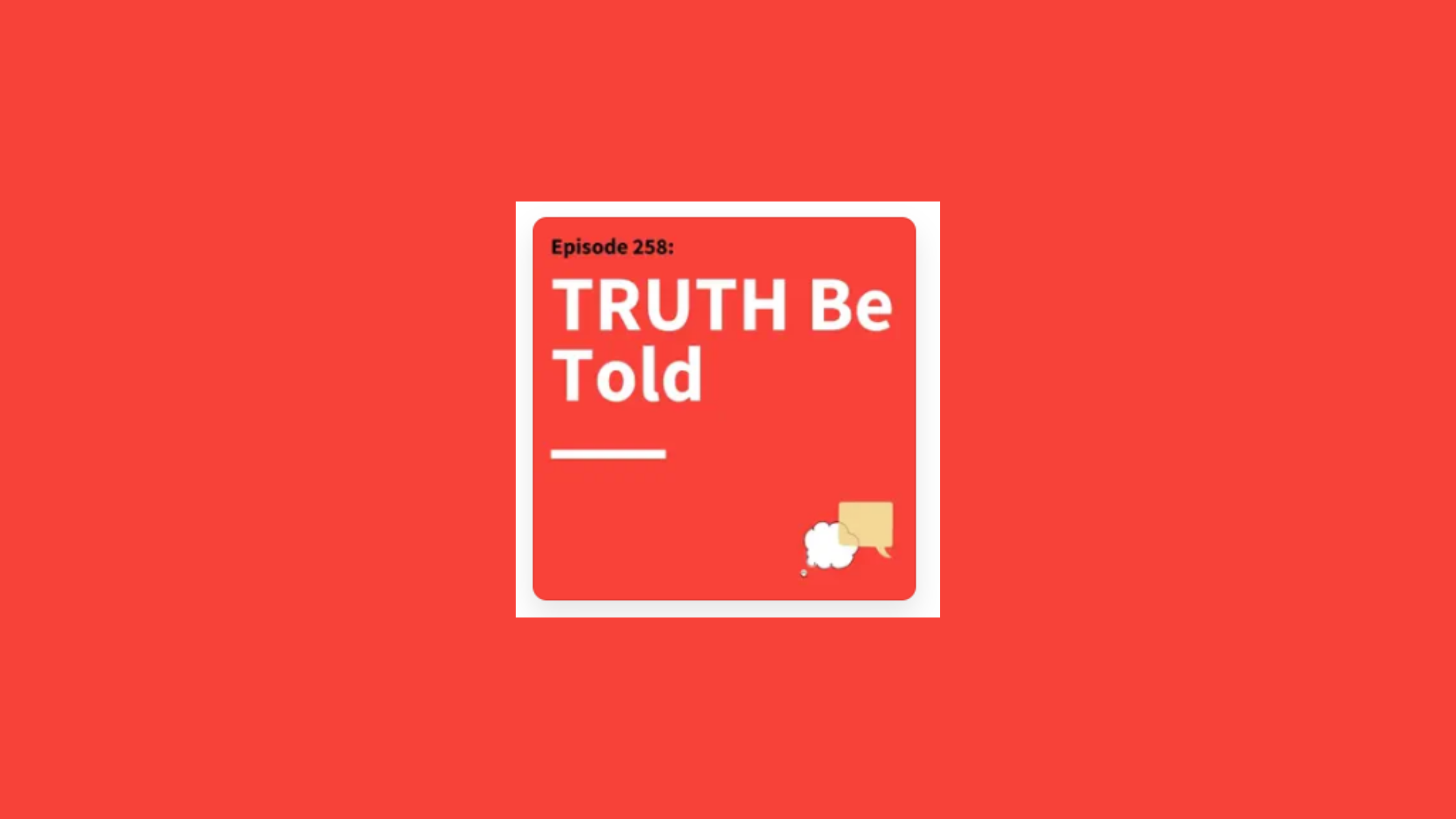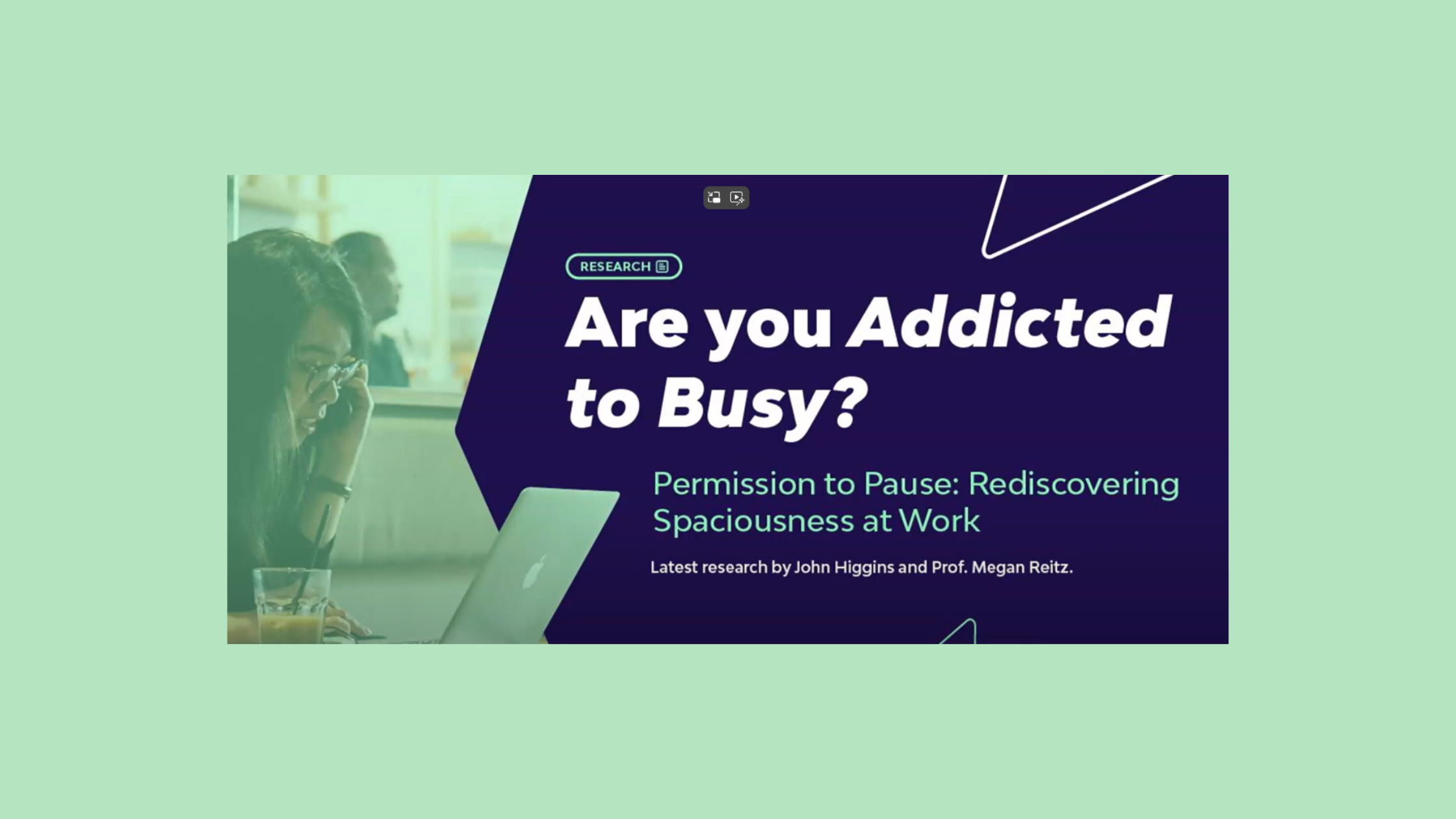I am a facilitator, teacher, speaker, executive coach, researcher and author dedicated to exploring and finding ways to improve the way we interact with one another in the workplace.

My passion and curiosity centres around the quality of how we meet, see, hear, speak, learn with and encounter one another in organisational systems and how we might encourage dialogue which is more humane and which enables us, our colleagues and our society to flourish.
Working at the intersection of leadership, change, dialogue and mindfulness, I have presented my research to audiences throughout the world and I am ranked as one of the top 50 management thinkers in the world by Thinkers50 and on the 2025 HR Most Influential list of Thinkers.
My recent research with John Higgins on ‘Speaking truth to Power’ – examining how perceptions of power enable and silence others – has been featured in five articles in Harvard Business Review. It is the subject of two TED talks, one on employee activism which has been viewed 1.5 million times and one on how power silences. Our book, Speak Up: Say what needs to be said and hear what needs to be heard, with Financial Times Publishing, was shortlisted for the CMI Management Book of the Year 2020 and the second edition, Speak Out, Listen Up was published in 2024.
With Michael Chaskalson I have been examining mindful leadership and our research has been published by Harvard Business Review (Nov, Dec 2016 and Aug 2020), featured in Forbes Magazine and our book, Mind Time: How Ten Mindful Minutes can enhance your work, health and happiness, (Harper Thorsons, 2018). I am also the author of Dialogue in Organizations; Developing Relational Leadership (Palgrave Macmillan, 2015).
As well as running my own business, I am Associate Fellow, Saïd Business School, Oxford University and Adjunct Professor of Leadership and Dialogue at Hult International Business School. I have supervised students undertaking their PhD and I also teach on a wide range of open and custom programmes. My particular interest is in action inquiry based research – research which is participatory and dedicated to initiating generative change through cycles of action, inquiry and reflection – however, my own research includes a broad range of methodological approaches.
Previous to my work with Oxford and Hult, I was a consultant with Deloitte; surfed the dot-com boom with boo.com; and worked in strategy consulting for The Kalchas Group, now the strategic arm of Computer Science Corporation.
I was educated at Cambridge University gaining an MA in Land Economy. I received a Masters in Change Agent Skills and Strategies at Surrey University and a Masters in Research at Cranfield School of Management where I was also awarded my PhD.
I am an accredited executive coach with Ashridge and The School of Coaching and I am qualified with the British Psychological Society to deliver and feedback a range of psychometric instruments. As a mindfulness teacher, I have studied with Bangor University’s Centre for Mindfulness Research and Practice and I am an Associate at Mindfulness Works with Michael Chaskalson.
I am mother to two wonderful daughters who test me regularly on my powers of mindfulness and dialogue. My favourite pastimes are to hike in beautiful countryside with my family and to cycle through the forest at Ashridge.
Featured
There are two modes of attention that people use at work: doing mode, in which they pay narrow attention to a specific task in order to control, predict and get it done efficiently; and spacious mode, in which they pay attention more expansively, without hurry, making them more receptive to relationships, interdependencies, and possibilities.
In our rush to do more, we’ve lost the critical space to think deeply. Leaders may trap themselves and others in “doing mode,” where quick actions overshadows thoughtful reflection - with hefty consequences like poor decisions, burnout, and stifled innovation. The SPACE framework (safety, people, attention, conflict, and environment) can help you enter the “spacious mode” – a different way of paying attention that enables better collaboration and wiser choices.
Professionals today are focused on doing mode— achieving goals and checking items off of to-do lists to satisfy their managers and companies. But better relationships, bigger-picture strategic and creative thinking, and personal well-being and satisfaction rely on pausing from doing mode and entering into spacious mode. To do this amidst daily pressures, people should recognize that they first need to give themselves permission to pause, adopt practices to train their minds to be more spacious, build a safe space for pausing around them, and keep the company of those who help them enter spacious mode
As HR and employees become increasingly obsessed with the 'doing' mode, now might be the time to activate the ‘spacious mode’.
Numerous employees, among them HR professionals, are returning to work this January with new year's resolutions, aiming to redress work/life balance, get less stressed and enjoy life more.
Across many areas of life, from education and health through to business and politics, we’ve become obsessed with the ‘doing’ mode. We like to keep busy in a world where success is measured and rewarded through meeting immediate, tangible targets. Pausing, stepping back to reflect on what this busyness is all about, is seen as a sign of laziness or inefficiency. It can also feel terrifying when we’re not used to it – it forces us to engage with who we are when we aren’t busy with our busy doing.
In the last of our special Mind Matters sessions, Megan Reitz, Amy Edmondson, Peter Sims and moderator Morra Aarons Mele discuss the implications of the leader’s optimism bubble, de-stigmatising failure, and building scaffolding to invite input: a culture of speaking up doesn’t create itself, it requires scaffolding. Find out more about productive vulnerability, the role of experiential knowing, and how to make space for the bigger conversations.
Speaking up — and being heard — in organizations is critical, but failed attempts to speak up happen often at work and can lead people to silence themselves and others in the long run. Instead, leaders and team members should frame such situations as opportunities to learn.
What does it mean to lead in this new age of employee activism? Megan Reitz offers a four-point crash course on what employees want from their organizations and how leaders can rise to the challenge of …
Brené Brown: “In this episode, I’m talking to Megan Reitz, a professor of leadership and dialogue, and John Higgins, a researcher and author, about an article they published in the MIT Sloan Management Review titled “Leading in an Age of Employee Activism.””
Recent Content
What does it truly mean to find a sense of spaciousness and permission to pause in a world that constantly demands our attention? Global business thinker Megan Reitz, an Associate Fellow at Saïd Business School at Oxford University and Adjunct Professor of Leadership and Dialogue at Hult International Business School, unpacks her latest research on attention management.
Why it’s critical to say what needs to be said — and listen when others do the same.
Speak out, listen up — these are Megan Reitz’s core pillars of workplace communication. According to her, healthy organizations are only possible when everyone can say what they think, and they know they’ll be heard.
Is there space to think, breathe, or connect in your workday? In this episode, I talk with leadership thinker and mindfulness researcher Megan Reitz about the tension between doing and being – and how fear, power and pressure keep us stuck in overdrive.
Megan is an Associate Fellow at Oxford’s Saïd Business School and co-author of Speak Up and Speak Out, Listen Up. Her latest research explores spaciousness - a different kind of attention that opens up creativity, connection and compassion.
Together we examine how workplace culture often rewards busyness over awareness - and what we lose when we constantly prioritise speed, certainty and performance.
On the 141st episode of What is a Good Life?, I’m delighted to welcome Professor Megan Reitz. Megan is an Associate Fellow at Saïd Business School, Oxford University, and Professor of Leadership and Dialogue at Hult International Business School. She is a leading thinker on leadership and dialogue, featured in the Thinkers50 ranking of global business thinkers, and the author of Dialogue in Organizations, Mind Time, and, most recently, Speak Out, Listen Up. Her work explores how we create the conditions for transformative dialogue at work, and her latest research examines how we can foster spaciousness — the capacity to innovate, reflect, and build relationships in workplaces addicted to busyness.
I’ve worked with Megan for years: we ran a brilliant simulation together and that experience was a period of growth and exploration for both of us.
Since then, Megan has written some of the most amazing research and books, with co-authors like Michael Chaskalson and John Higgins, who have both been guests in this series. She is sought after as a speaker, facilitator and consultant, and I admire her greatly.
I am delighted that we had the chance to do this episode before she went off on a summer break. It’s a lovely exploration of her research and writing, its roots and why it all matters so much to her. I do hope you enjoy it as much as I did.
‘Busyness’ is increasingly seen as a badge of honour and productivity is regularly measured and rewarded at work. Despite all we now know about workplace stress, anxiety and burnout, we seem to be doing little to address the destructive pace at which we are living our lives. In this episode, Jen, Dom and Cat chat with Megan Reitz and John Higgins about their latest research, on the topic of spaciousness and how to find it.
There are two modes of attention that people use at work: doing mode, in which they pay narrow attention to a specific task in order to control, predict and get it done efficiently; and spacious mode, in which they pay attention more expansively, without hurry, making them more receptive to relationships, interdependencies, and possibilities.
In our rush to do more, we’ve lost the critical space to think deeply. Leaders may trap themselves and others in “doing mode,” where quick actions overshadows thoughtful reflection - with hefty consequences like poor decisions, burnout, and stifled innovation. The SPACE framework (safety, people, attention, conflict, and environment) can help you enter the “spacious mode” – a different way of paying attention that enables better collaboration and wiser choices.
Professor Megan Reitz and John Higgins as they share their latest research on a pressing issue: our addiction to busyness. Discover: 🏃How being stuck in “doing” mode can blind us to critical challenges and opportunities, while also damaging key relationships squeezing out the spaces for quality conversations of all types. 📖 Their research on why shifting from a relentless “doing mode” to embracing “spacious mode” is essential for effective leadership and cultivating meaningful workplace relationships. 🎯 Practical strategies to integrate “Spacious Mode” with our everyday “Doing Mode,” enabling you to move beyond mere busyness and cultivate a thriving, flourishing work environment.
Do you feel like a rubber band about to snap- low on capacity, time, and space to think? Are you constantly stuck in a mode of “doing” - trapped by your own productivity? Researcher and author Megan Reitz says that shifting into “spacious mode” could do wonders for your mental health, your relationships, and your work. She speaks with Morra about how our obsession with productivity might be crowding out creativity, insight, and connection. Plus, she’ll share practical ways to slow down, get present, and pay attention.
On this episode of Culture & Compliance Chronicles, Nitish Upadhyaya from Ropes & Gray’s Insights Lab and Richard Bistrong of Front-Line Anti-Bribery, are joined by Megan Reitz, founder of Reitz Consulting and an Associate Fellow at Saïd Business School, Oxford University. Megan, a renowned thought leader listed on the Thinkers50 ranking and HR Magazine’s Most Influential list, shares insights from her latest co-authored book, Speak Out, Listen Up: How to Have Conversations That Matter.
Professionals today are focused on doing mode— achieving goals and checking items off of to-do lists to satisfy their managers and companies. But better relationships, bigger-picture strategic and creative thinking, and personal well-being and satisfaction rely on pausing from doing mode and entering into spacious mode. To do this amidst daily pressures, people should recognize that they first need to give themselves permission to pause, adopt practices to train their minds to be more spacious, build a safe space for pausing around them, and keep the company of those who help them enter spacious mode





















